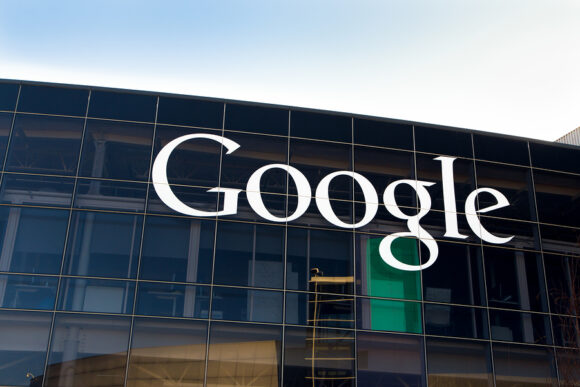The almost weekly headlines about insurers and venture capitalists investing in insurtechs and tech-savvy insurance startups sometimes blocked the view of what established big technology firms were doing in insurance.
During 2018, giant technology firms Google and Amazon showed renewed interest in insurance and generated speculation about their insurance intentions going forward.
Google invested in a major insurance agency technology company and expressed interest in investing in additional insurance enterprises. Amazon teamed with two large employers in an ambitious undertaking to completely reimagine the nation’s health care and insurance system. Amazon also showed interest in creating an insurance comparison website in the United Kingdom.
Meanwhile, consumers continued to warm to the notion of buying their insurance from Google or Amazon.
For traditionalists, there was one comfort: transportation tech firm Uber signaled it has no interest in getting into the insurance business. However, investor Softbank is interested in new ways to sell insurance to the clients of Uber and similar platforms.
Here is a recap of stories from 2018 about big technology courting big insurance:
Google Invests in Insurance Agency Software Firm Applied Systems
Giant Google’s investment arm purchased a minority stake in Applied Systems, a provider of insurance technology and cloud-based software for independent agencies. Applied Systems CEO Reid French confirmed that Google/CapitalG will become minority investor, while adding that Google/CapitalG’s financial stake is significant. “It’s not small,” Reid said of the investment. “They made a legitimate commitment … it’s real money.” Applied Systems reassured its clients, independent insurance agents, that they should welcome, not fear, Google’s involvement with the firm. In return for the Alphabet/Google/CapitalG investment, Applied Systems gains access to Google expertise in areas including artificial intelligence, machine learning and digital marketing but, according to French, Google will not b able to tap into any of Applied Systems’ insurance data residing in the cloud or within various customer applications. “There are many agents that have wanted to have greater access to high technology. The vast majority will view this, with the facts, as super-duper positive for Applied and for the industry,” French said.
Google ‘Definitely’ Interested in Other Insurtech Investments Following Applied Systems
Google is eager to invest in other insurance technology companies well beyond its newly announced minority stake in Applied Systems. “We really like the market,” said Jesse Wedler, a principal with CapitalG, the growth equity investment fund of Google’s parent Alphabet. “We will definitely be looking for additional investments in the insurance technology space.” Wedler said the search would be for other businesses like Applied. “Broadly speaking, the software businesses addressing the insurance market are interesting to us,” Wedler said. He emphasized, however, that potential investment targets won’t be rivals of Applied.
1-in-5 Consumers Say They’d Use Amazon or Google for Home Insurance
One-in-five consumers say they would use Amazon or Google for their home insurance, a J.D. Power survey showed. And most of those who took the survey (80 percent) already have insurance with a large national carrier. Both Google and Amazon have been previously pegged as potential insurance market entrants despite a Google failure in the space. J.D. Powers believes that wasn’t the last of the firm’s efforts to get into the insurance business.
Amazon Weighs Formation of UK Insurance Comparison Website
Reuters reported that Amazon is gauging the interest level of Europe’s top insurance firms in contributing products to a UK price comparison website. While it was not immediately clear what type of insurance would be sold on any Amazon site, home and motor policies are popular sellers on existing UK price comparison sites. “As Amazon becomes a larger part of the home, whether it’s products delivered to the home, security monitoring, home services like Wi-Fi installation, you can make the case that insurance is the next logical step for this company,” said Morningstar analyst R.J. Hottovy.
Travelers Teams with Amazon to Offer Smart Home Products, Insurance Quotes
Speaking of the home product market as an entranceway into insurance, The Travelers Companies Inc. announced it is teaming up with Amazon in selected states to offer smart home kits, insurance quotes and risk management information through a digital storefront: Amazon.com/Travelers. Customers may obtain smart home kits that include security cameras, water sensors, motion detectors and a smart home hub at discounted prices. Consumers interested in a home insurance quote are directed from the Travelers storefront on Amazon to the company’s website or to an independent insurance agent. In addition, Travelers independent agents can use Travelers and Amazon co-branded products to market to customers about smart home technology.
No Reason for Insurer Panic Over Amazon… Yet
Should insurers be worried about Amazon disrupting insurance as it has retail? At the S&P Global Ratings insurance conference, analysts said there’s no reason to panic. If Amazon does offer home insurance, it would probably start small with “simple, bare-bones” coverage, said one analyst, who also questioned whether the e-tailer would even take such a step. “Does Amazon really want to get regulated? I don’t think they do.”
After Amazon Conquers Banking, Insurance Could be Next
Tech companies pose a challenge to banks. Amazon is reported to be in talks with JPMorgan Chase and other big retail banks to create a checking-account-like offering aimed at younger adults and those without checking accounts. This move would build on the company’s initial forays into financial products over recent years and be the start of its venturing into lending, mortgages, property/casualty insurance, wealth management and term life insurance, according to consultants at Bain & Co.
JPMorgan, Amazon, Berkshire Venture to Target Health Issues Using Data, Technology
JPMorgan Chase & Co., Amazon.com Inc., and Berkshire Hathaway will focus on the biggest health issues threatening the U.S. economy in their new joint venture, including aligning healthcare payments with employee health and addressing chronic diseases, CEO Jamie Dimon said. The three giant firms announced in January that they would form a venture that would use technology to try to cut healthcare costs for their employees, and potentially open the venture to other companies. Dimon said the company would focus on using big data, virtual technology, better customer engagement and more consumer choice to address critical problems and issues.”
Softbank Plans Big Push into Insurance Investments
Softbank is not a tech firm itself but it is a major investor in tech-based insurance firms. In the past year, it backed China’s largest online insurer ZhongAn as well as PolicyBazaar, India’s biggest online insurance seller, as well as U.S. home insurer Lemonade. Softbank sees the insurance sector as ripe for disruption and believes insurtechs can partner with other firms within its portfolio including Uber and office sharing firm WeWork to sell new products and services to their clients.
Relax, Uber’s Not Interested in Entering Insurance Business
While it is weighing providing benefits and insurance to its independent contractor drivers, ride-hailing giant Uber is not interested in getting into the insurance business itself. Rather, the global transportation firm is content to focus on being an “intelligent purchaser” of insurance, continuing to work with insurance carriers and brokers on any insurance for its drivers. “No, to be honest, we’re trying to get out of the insurance business,” Curtis Scott, global head of insurance for Uber, said. “I can tell you that Uber doesn’t have a desire to. We are good at being a tech company that’s in logistics and we want to do that. That’s what we’re strong at,” he said. “Insurance companies are good at being insurance companies and that’s hard to do,” he added.


